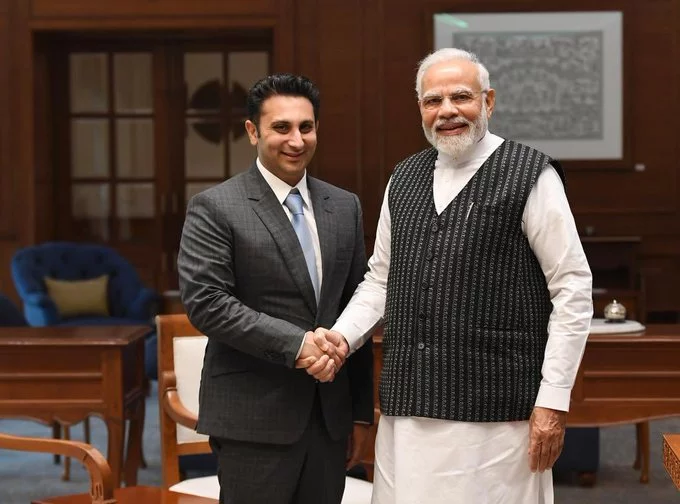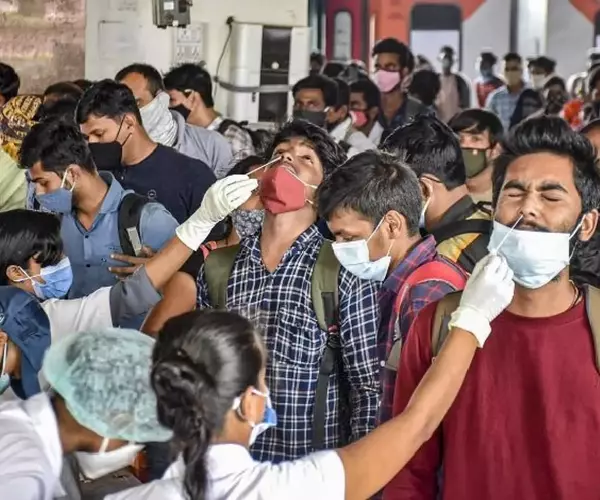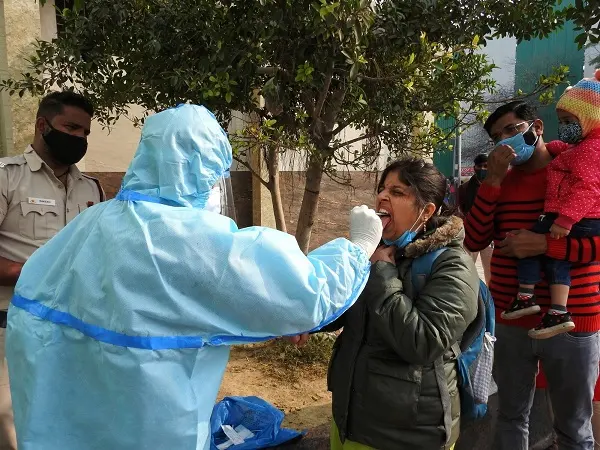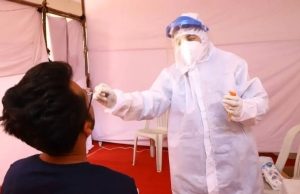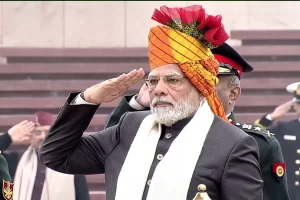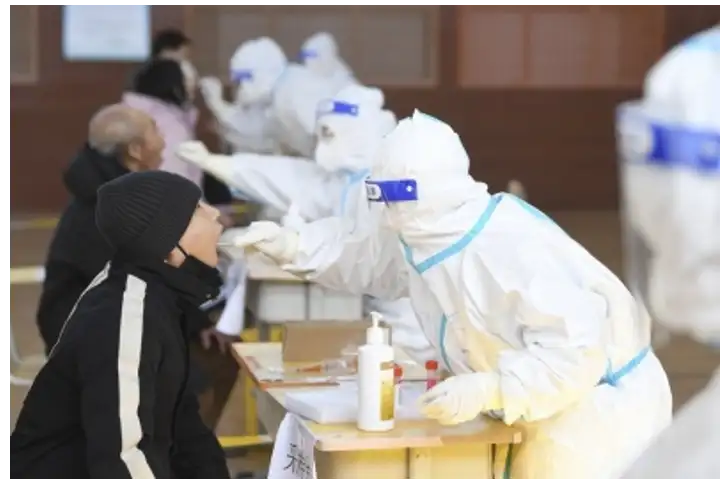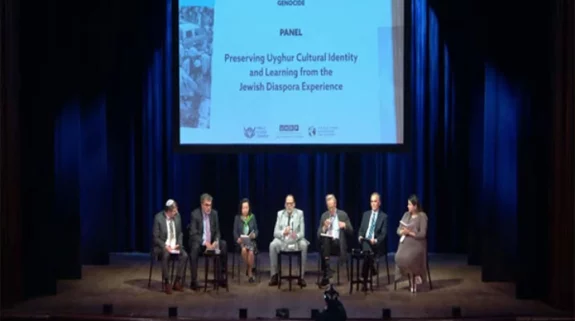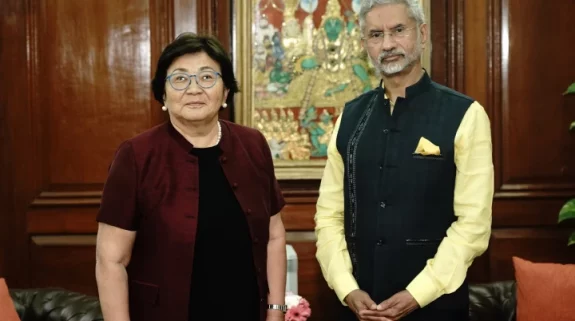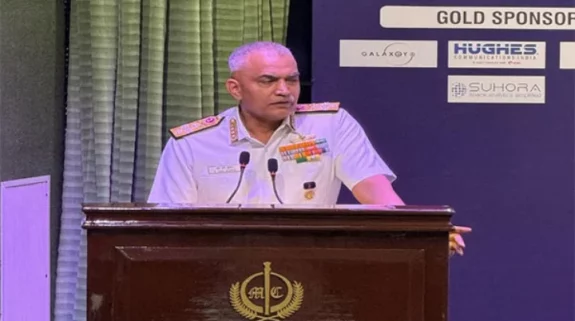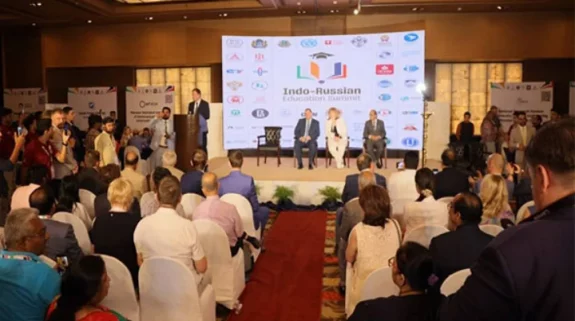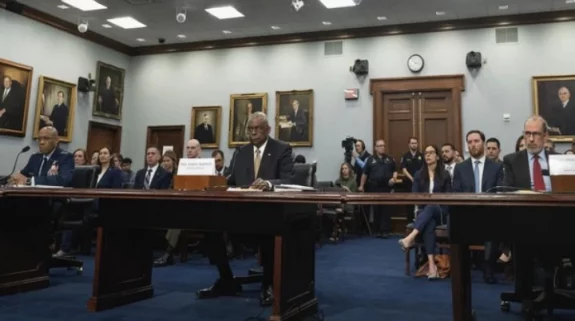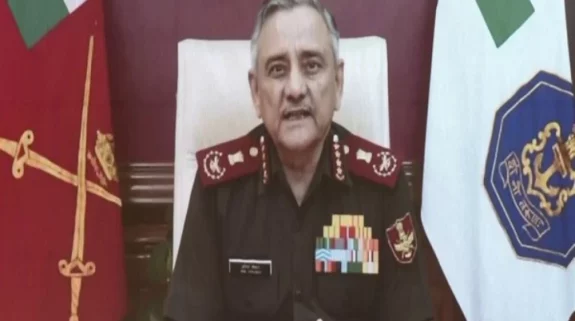In the ‘far from normal’ last two and half years, where humanity came the closest to living in a ‘science fiction’, India and Indians under the untiring leadership of PM Narendra Modi can collectively claim that we learnt crucial, once-in-a lifetime lessons during the Covid-19 crisis and we demonstrated resilience, determination and strength that has earned respect of the world.
Such a claim can be made for the vaccine space, too in India. Be it the vaccine manufacturing prowess of India; be it innovation trials in R&D; be it unleashing the potential of public-private partnerships; be it digitization of vaccination drive; be it how government departments came together on a mission mode; under the leadership of Hon’ble Prime Minister Narendra Modi, efforts taken to communicate and convince a billion people to take life-saving jabs, we can claim to have put together lessons of decades into two years, to succeed on many fronts. That’s no small achievement, particularly amid rapidly shifting realities, and real-time evolving science and given social discord and vaccine hesitancy in so many different countries
The development of safe, effective vaccines for a novel virus like SarsCoV2 in less than a year, will go down as one of the most impressive feats in the history of modern science. And the role of India’s vaccine ecosystem will get etched in that history. Despite myriad local challenges such as accidents, and global ones such as acute shortage of raw-materials, Serum Institute of India (SII), the world’s largest vaccine manufacturer by doses and other Indian vaccine-makers churned out well over 2 billion doses, sufficient to cover almost a third of humanity on the planet if one dose offered immunity to an individual. That scale of manufacturing is a mere indicator of the potential India has to offer to the world as vaccines grow more high-tech and offer life-course protection against several other diseases across ages.
The country also excelled in providing health tech solutions best showcased by Co-Win, the digital backbone of the vaccination drive. The speed with which India adopted e-Vin, its smart vaccine supply chain management system used in universal vaccination programme meant for children and expecting women into Co-Win has been exemplary. India had started issuing digital vaccine certificates right from the start, at a time when many developed countries were struggling to digitise vaccine certificates and were issuing it manually. Co-Win remains that valuable platform that can prove handy if other universal or age-specific vaccines are to be administered, either responding to an emergency or in a well-planned programme. It’s an asset that can also be adapted for other public health programmes in various ways.
🔹More than 190 Cr Vaccine Doses administered
🔹Co-WIN generated over 100 cr provisional, 87.6 cr final and over 3 cr precautionary dose certificates till date
🔹Drone-based delivery of COVID-19 Vaccine started in difficult to reach areas#8YearsOfSeva #LargestVaccineDrive pic.twitter.com/H9jHvGpVui— PIB India (@PIB_India) May 30, 2022
Three areas where the country took a leap in attempting novel experiments and reaped rich learnings are vaccine research and development, the drug regulatory system, and the deep engagement of the government—across departments with private players to shape the Covid-19 response. First, fully aware of how uncertain the path of vaccine discovery could turn out to be particularly during a raging pandemic, the government chalked out a well thought out strategy.
That made sense, as one didn’t know at the time which one would click, and even if multiple vaccine candidates succeeded, which one would emerge the safest, most efficacious and most convenient to use. In vaccine-making, a science so complex, the first is not necessarily the best. Betting on a pipeline that was numerically rich, and technology-wise diverse, meant that the scientific community and innovation ecosystem packed a decade of learning into a year. It also showed us what was possible in vaccine development if companies, policymakers, and scientists came together.
Our drug-regulatory system, traditionally badgered as slow-moving, learnt to put in place accelerated pathways to approve vaccines, like many global regulators in mature markets. Keeping patient safety as the top priority, these lessons of agility and efficiency would seep into the workflow of the regulatory system, if the war against other diseases, equally or more dreaded than Covid-19, have to be waged effectively and forcefully.
What also helped in shaping the pandemic response was the way the government turned into one ‘whole’. Under the guidance of Prime Minister Narendra Modi, a number of inter-disciplinarian inter-departmental empowered groups broke the culture of working in specialised silos and practiced what is now hailed as ‘whole of government’ approach taking swift decisions. Industry too was involved as an important stakeholder in many areas. All stakeholders including media, local influencers, civil societies and international as well as national partners played supportive roles. Continuing this approach well into the future has the potential to strengthen our country’s response to other public health challenges.
Modi Govt's work being noticed by world once again.
World Bank report praises India's COVID-19 strategies, stating that India used a 'Whole of Government' approach & accelerated tendering process in the fight against COVID-19 pandemic.
Proud to have a leader like @narendramodi pic.twitter.com/QPRrsDz8IT
— Chetan Bragta (Modi Ka Parivar) (@chetanbragta) August 31, 2022
Finally, one of the most fundamental but valuable lessons we have learnt is to communicate transparently and engage effectively with the community in public health contexts and exhort them to place their faith in science in a language they understand best. From cutting-edge technologies like drones to deeply traditional auspicious symbols such as turmeric, from 24×7 public health and risk communication disseminated across the county, coupled with a range of innovative communication strategies were employed to invite people for vaccination or reach the last mile with vaccines.
At a time when many developed countries struggled with the anti-vaxxers movement, Indians showed through their overwhelming participation in the vaccination drive that it’s a country where scientific temper trumps hesitancy hands down. Despite being the second most populous country, 96.7% of the eligible population have been vaccinated with the first dose, 89.2% have taken both doses, and over 18.7 crore precaution doses have been administered. It is a clear testament to Covid-19 vaccination’s grand success. Special campaigns are being conducted across the country to encourage eligible beneficiaries to take up their due doses.
In 2021 alone, Covid-19 vaccination programmes averted nearly 20 million deaths globally, according to an estimate cited in Human Development Report 2022. Despite all the challenges, India, under the leadership of Prime Minister Narendra Modi has truly turned the response to covid pandemic into a janandolan (people’s movement) through the whole of government approach thorough the participation by all stakeholders.






